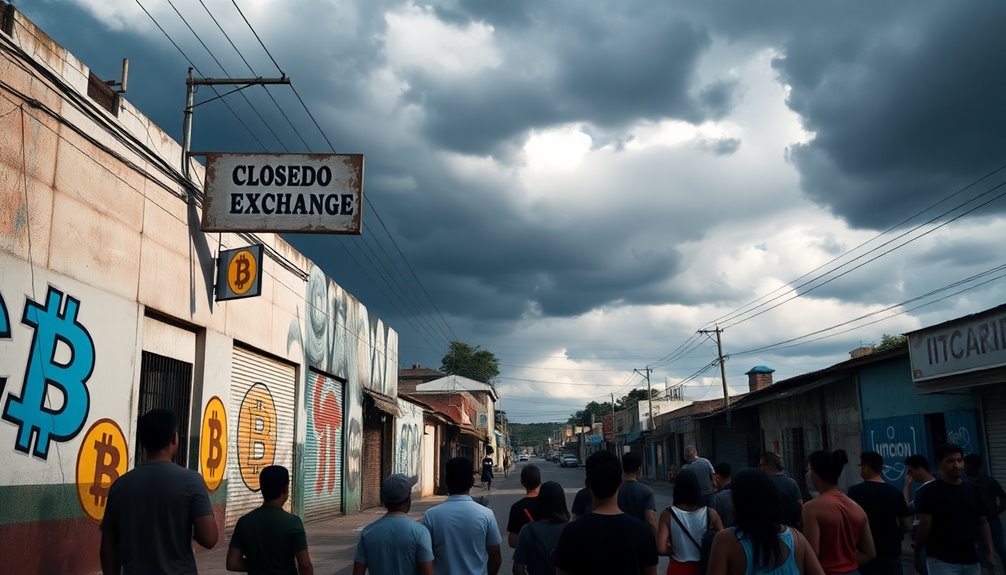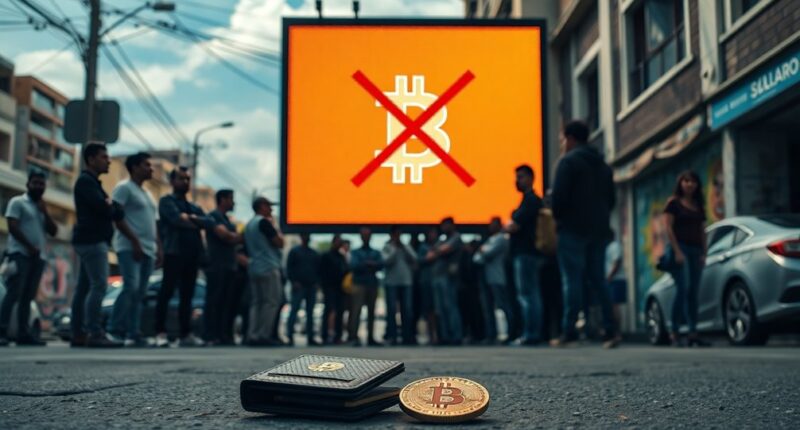You might have heard that El Salvador has revoked Bitcoin's designation as a currency, which raises several questions about the future of cryptocurrency in the country. While Bitcoin remains legal tender, businesses are no longer obligated to accept it, leading to a significant drop in its usage. This shift follows mounting pressure from the International Monetary Fund and growing public distrust. What does this mean for the broader implications of Bitcoin adoption?

As El Salvador navigates its complex relationship with Bitcoin, the government has officially revoked the cryptocurrency's designation as a currency, although it remains legal tender. This change comes after an initial adoption in September 2021, when El Salvador became the first country to recognize Bitcoin as legal tender. At that time, businesses were mandated to accept it, with the government launching the Chivo wallet to facilitate transactions.
However, public reception has been far from enthusiastic, with only 15% of the population expressing trust in Bitcoin and around 70% opposing its adoption. The recent legislative reform now allows businesses to voluntarily accept Bitcoin, removing the obligation to do so. This shift aligns with the conditions set by the International Monetary Fund (IMF) as part of a $1.4 billion loan agreement, which pressured the government to reconsider its Bitcoin policies due to associated risks.
Public trust in Bitcoin remains low in El Salvador, with 70% opposing its adoption amid recent legislative reforms.
Notably, Bitcoin can no longer be used for tax payments or settling state bills, further limiting its role in the economy. Despite initial hopes, the financial inclusion that Bitcoin was supposed to bring has largely failed to materialize. By 2024, a staggering 92% of Salvadorans hadn't used Bitcoin for transactions, and only a small fraction—1.3%—of remittances were made using the cryptocurrency. As a result, public usage of Bitcoin remains extremely low despite government efforts to promote it.
Local businesses also reported minimal impact from Bitcoin's adoption, with 86% noting no transactions conducted in Bitcoin and 91.7% seeing no benefits. The government's continued involvement with the Chivo wallet is set to diminish gradually, as technical issues and hacking incidents have eroded public trust even further.
Street protests against the Bitcoin law in 2021 highlighted the discontent among citizens, who remain skeptical of the cryptocurrency's viability. The volatility associated with Bitcoin has also discouraged widespread use, as many potential users fear the financial risks involved.
Nevertheless, the government still holds a significant amount of Bitcoin, valued at approximately $612 million, and continues to make purchases. This indicates an ongoing commitment to the cryptocurrency, despite the new legal changes. The IMF, however, continues to voice concerns about the risks posed by Bitcoin, labeling it as "extremely risky" for macroeconomic stability.
As El Salvador navigates this turbulent landscape, the future of Bitcoin in the country remains uncertain, reflecting the broader struggles of adopting cryptocurrencies in traditional economies.









